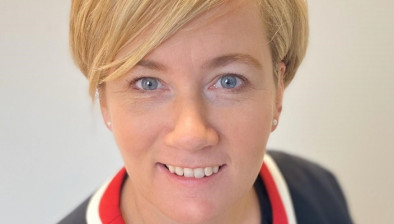Call for rethink on ‘one size fits all’ approach to short-term lets

New licensing laws being proposed for short-term let housing could have a devastating impact on Scotland’s rural communities at a time when people are reeling from the wide-scale impacts of Covid-19, according to Scottish Land & Estates (SLE).
In response to the Scottish Government consultation on a licensing scheme for short-term lets, which includes glamping sites, B&Bs and holiday cottages, SLE reiterated its major concern that these proposals have been shaped with mainly urban hot spot areas in mind and fails to take into account the important role short-term lets play across rural Scotland by providing housing for communities and workers, as well as bringing in vital tourism.
SLE also highlighted its concerns that:
- Licensing fees and administration costs have been significantly underestimated with some licenses potentially costing thousands of pounds
- The consultation process is potentially in breach of Scottish Government’s own best practice guidelines in terms of transparency, accountability, proportionality, and consistency
- The Scottish Government’s ‘Rural Scotland Key Facts’ report published in February 2021 contains important and directly pertinent information which calls into question much of the motivation and reasoning for the licensing of short term lets across Scotland, and rural areas in particular
- The Business and Regulatory Impact Assessment (BRIA) has failed in its duty to take a Scotland-wide view of the industry, is deeply flawed and recent resignations from the related industry working group show it is not widely supported by affected businesses
- By the proposals being taken forward as secondary legislation, this does not offer an appropriate level of scrutiny for such a fundamental change and at a time of crisis for the sector that will be most heavily impacted.
Simon Ovenden, SLE policy adviser, said: “We absolutely agree that the safety of people using short-term lets is paramount and communities should not be driven apart by a lack of available long-term housing in their local area.
“We are, however, very concerned that this one size fits all approach fails to reflect the needs of rural communities and could lead to mass closures of short-term accommodation, which would have a massive impact on rural Scotland.
“In our view, the Scottish Government needs to have a serious reassessment about these proposals. We believe a simple registration scheme akin to the ASSC’s proposal would be a positive step forward and in tune with the interests of all parties. This would allow proper enforcement of existing health and safety standards and appropriate planning policy which prioritises housing development for residential use without excessive bureaucracy and spiralling costs.”
He added: “A number of rural businesses hire seasonal and short-term workers for jobs which may only last a short number of weeks or months. Offering accommodation is key to filling these roles, but if these new laws are to be introduced then that could be put at serious risk.
“These proposals come at an awful time for many rural businesses. The Covid-19 pandemic has devastated Scotland’s tourism industry, and at a time when the Scottish Government should be supporting this vital sector, these proposals could mean the end for many rural businesses.
“These regulations will not only impact short-term let providers but will also affect other local businesses with many relying on local tourists visiting their area of rural Scotland. The wider-scale impact of such changes must be understood before any new regulations are brought into force and we do not feel adequate time has been set aside to effectively do that.”








